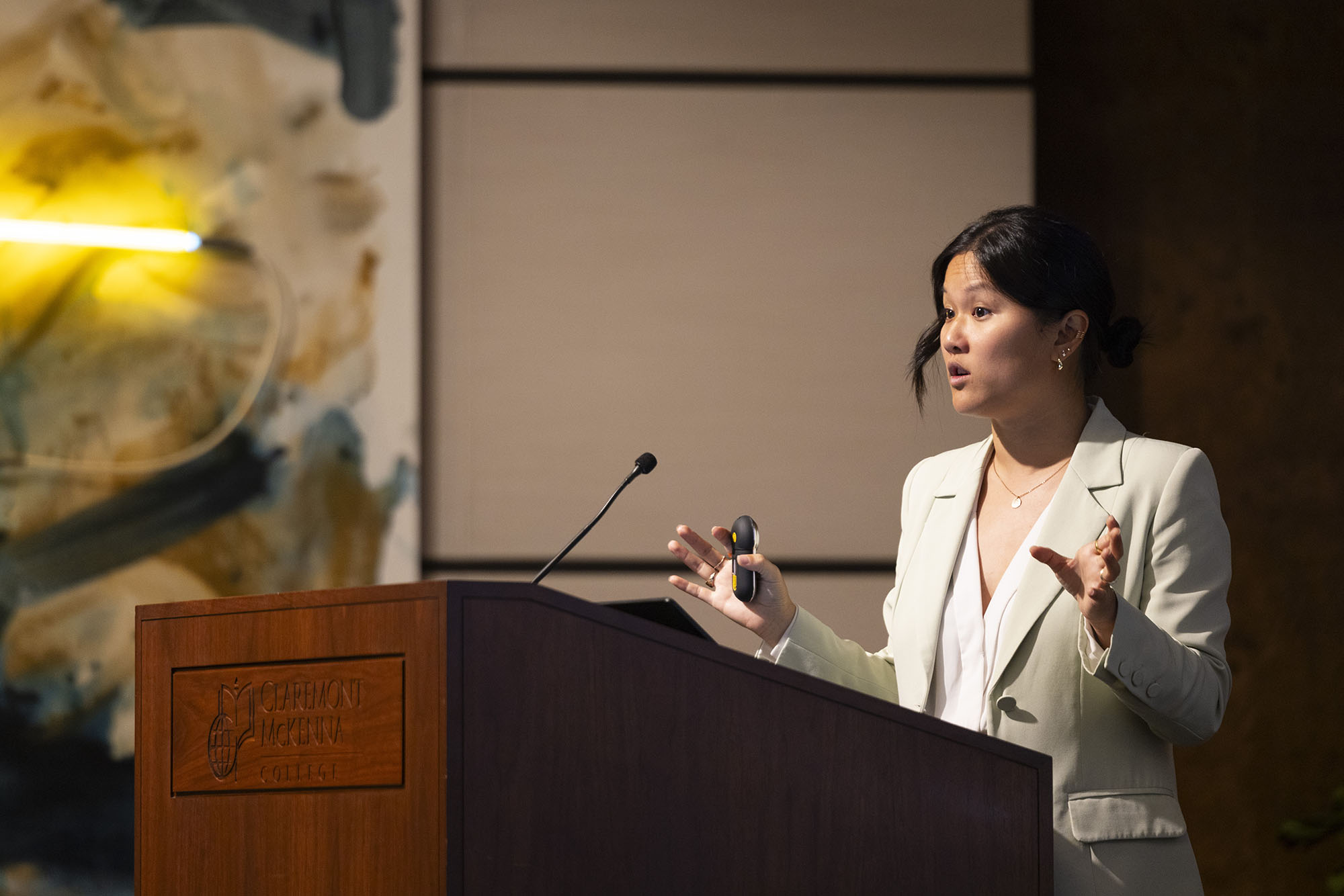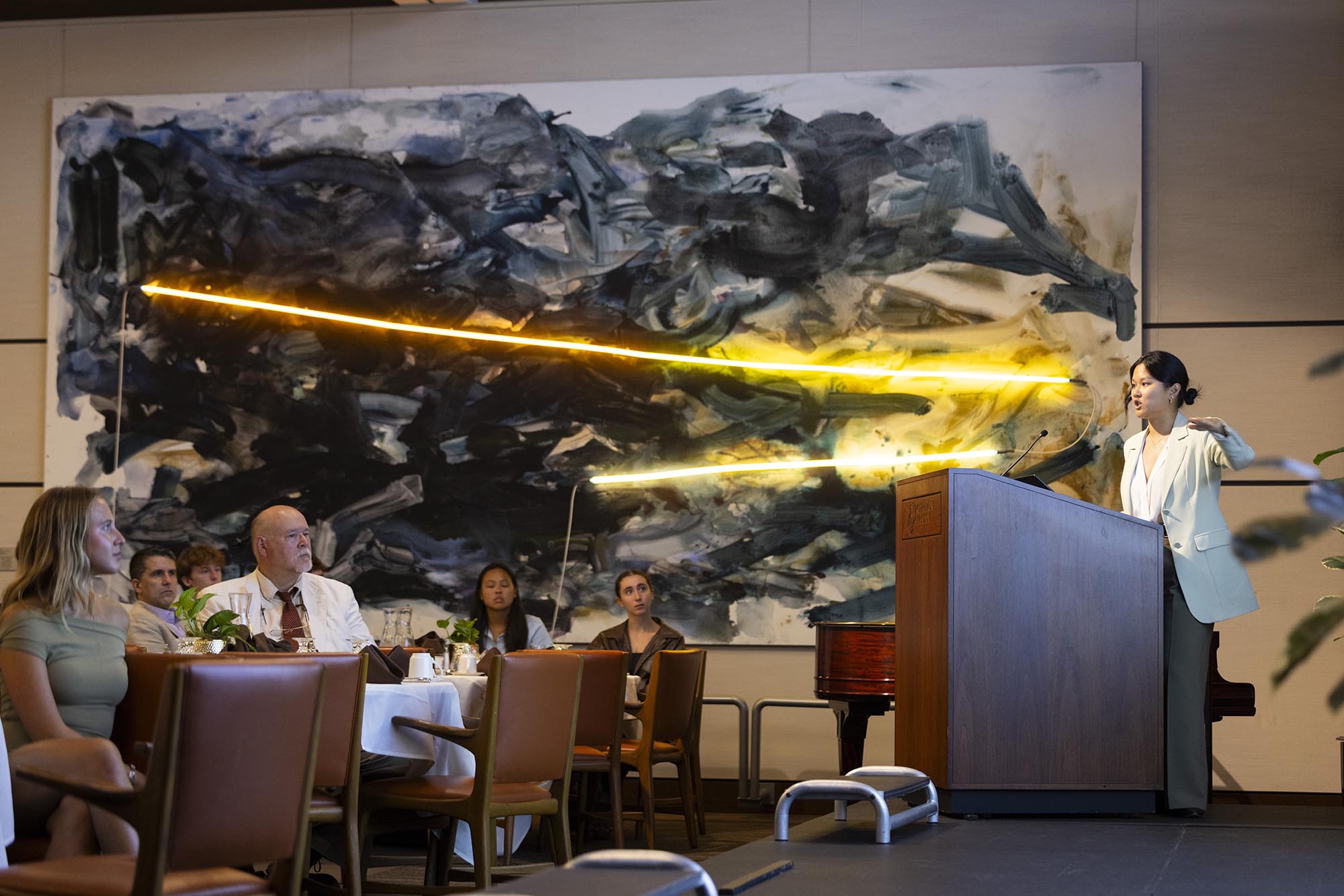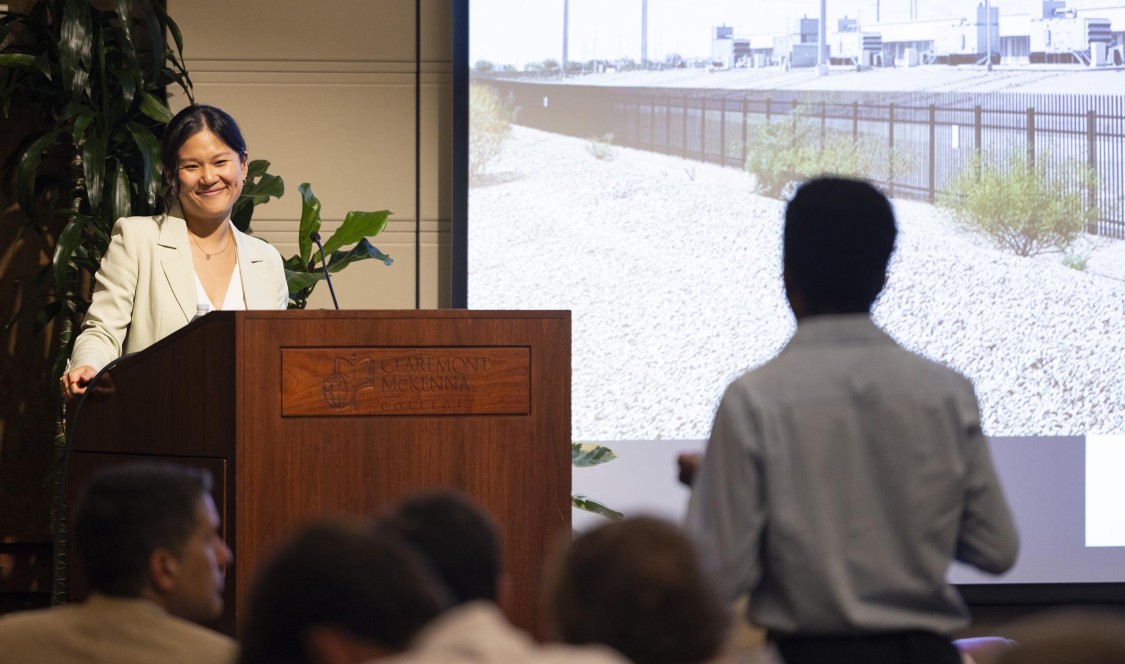The first talk of the Marian Miner Cook Athenaeum’s 2025-26 season stimulated thoughtful conversations and engagement that continued long after Karen Hao finished her presentation, “Empire of AI: Dreams and Nightmares in Sam Altman’s OpenAI.”
The capacity crowd included CMC students—some enthusiastic to be attending an Ath dinner for the first time—as well as faculty, staff, and members of the Claremont community, all drawn to the timely topic of artificial intelligence.
Important issues, complex questions, stimulating conversations, and delicious dinners are on-brand for the prestigious Athenaeum speaker series, which for nearly six decades has served as the heart of intellectual engagement at the College, keeping an invigorating four-evening-a-week schedule during the academic year.

On Sept. 8, Ath Fellow Lauren Lambrecht ’27 helped to launch the season, introducing Hao, a best-selling author who was the first journalist to profile the company, OpenAI, which just this week signed a deal with Oracle to build $300 billion in computing infrastructure to develop AI technologies. She writes for publications including The Atlantic and leads The AI Spotlight Series, a program designed with the Pulitzer Center, which trains thousands of journalists around the world on how to cover AI.
Lambrecht promised that Hao would “share her insights, her reporting, and her vision for how we should ethically navigate this new source of technology.”
Hao began by framing her talk around what she has learned covering AI for the past seven years, sharing her critiques (e.g., the significant toll the technology takes on the environment, as well as on the workers behind the scenes), and how she thinks “we might be able to redirect the trajectory of AI development to something better.”
She noted how “students and teachers are having open debates about how to responsibly use AI in schools and universities,” a major step in using “different forms of democratic contestation along the supply chain of AI development and deployment, where every single group is essentially asking, ‘How do we rebalance power and redistribute it away from the Silicon Valley model, where it’s just a few people at the top dictating what everyone else has to deal with?’” The goal, she said, should be to “actually get to a place where everyone can participate and everyone can benefit from this revolution.

“And I think if we can amplify all of these movements 100,000 times, we will get to a far better place with AI serving everyone. If there’s one thing that you take away from this talk, I hope that it’s this: That technology is not inevitable. Technology is actually a product of human choices, and we are all humans with choices. I hope that you see yourself playing an active role wherever you end up. …shaping the trajectory of AI development, technology development, and building the future that you want to see.”
Caleb Rasor ’28 posed the first audience question, asking, “…if you start to pick and choose what kinds of AI and what kinds of development are considered acceptable, you end up creating guardrails that could prevent any kind of AI from being made. How do you balance those conflicting issues?”
Hao responded: “You have to think about how to design regulation in a way that doesn’t stifle innovation. And how to design checks around industries beyond regulation, just to make sure that it’s held accountable but also allowed to innovate and continue building goods that we need. But without any of those guardrails, you end up with the same effect, which is that these tech companies end up not building what we need.”
Learn more about the fall semester speaker lineup at CMC’s Athenaeum.

